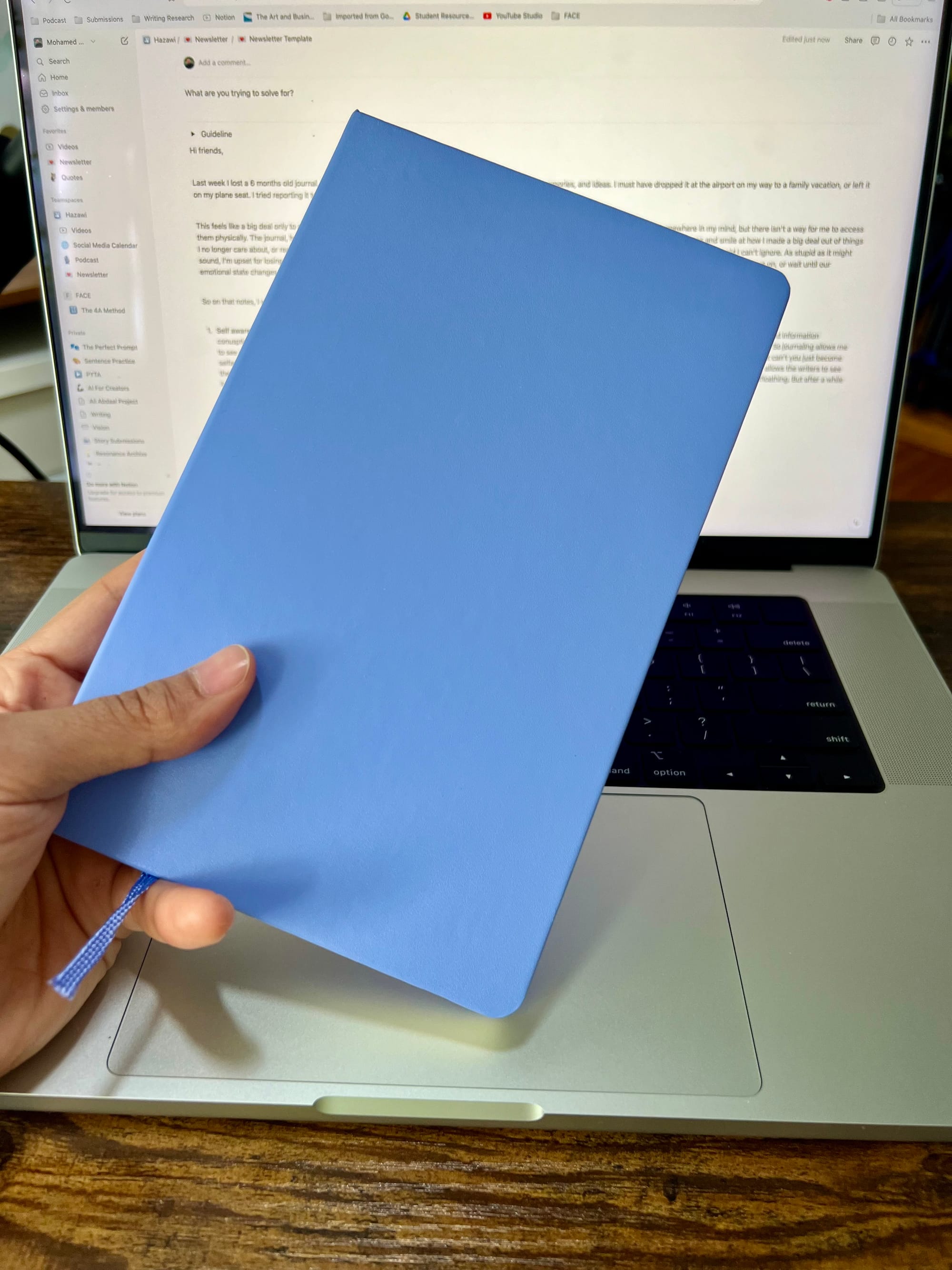What I Learned from 10 years of Journaling
Hi friends,
Last week, I lost a 6-month-old journal—my 2024 journal, filled with at least 80 pages of reflections, memories, and ideas. I must have dropped it at the airport on my way to a family vacation, or left it on my plane seat. I tried reporting it to the airport and airline lost and found, but I haven’t heard anything.
Losing this journal is a big deal to me. It almost feels like losing a photo album. While the memories still exist in my mind, there's something about physically accessing them through the pages that adds a sense of tangibility. Although it's not the worst thing that's happened to me this year, its loss leaves a void I can't ignore. I'm upset about losing it, but life goes on regardless of our emotions or losses. Sometimes, our only option is to learn from our experiences and try to move on. There are people who are losing their lives, and their loved ones as I write this. So losing a journal is silly.
On that note, I want to share the three main reasons and benefits of journaling (from someone who’s been journaling for the last 10 years):
- Self-awareness: Journaling allows me to see myself from an outside perspective. Often, we are stuck in our own social and knowledge bubble that’s shaped by our upbringing and information consumption habits, and we don’t even know it. We think we’re always right, doing the right thing—how can we not when we see ourselves as the main character in our small world? Journaling allows me to see myself as that character that I chose to act as, and gives me leverage to critique my opinions, decisions, and thinking process. In other words, it makes me self-aware. But can’t you just become self-aware by being self-aware? Why do you need to write about it? To that, I’d say: there is something about writing for the sake of writing, and not for school or an audience, that allows the writers to see their psyche on the page, like looking at oneself in the mirror.
- Reduction of stress: I don’t journal and my worries suddenly go away. I think what happens is that when I write about what I’m going through, it helps me see them for what they are, and not for what I imagine them to be. In other words, they become tangible, small, and digestible. On the other hand, every time I write about how my life sucks, I’m automatically pulled into a state of gratitude—this is a superpower. When I’m going through a lot of doubt about my writing, where I’m heading, or how the world sucks, I can just list the things I’m grateful for, and that can bring joy even during dark times.
- Clarification of ideas: When I write about ideas I’m pondering they develop a shape in my head. It’s like sharpening them or something, which makes it easier for me to talk about those topics when I have to present on them, make a video, or even in conversation. For example, if someone asks me why do I journal, the three things I have listed here will automatically come to mind, in an organized and clear manner that makes easier for me to talk about. In other words, my ideas are clearer, and I can speak to them with confidence and order. If I didn’t journal about a certain topic, I notice that I share anecdotes in between a lot of ‘like’ and ‘umms’, which is not bad, but incomparable to those I’ve challenged my mind to put into words.
Happy journaling!
🔖 Quote I’m pondering
“The world is crazy. Creative work is hard. Life is short and art is long.”
— Austin Kleon
📸 Through My Lens

Please give me feedback on the newsletter by replying to this email. Do you find it worth your time? What do you want more or less of? Or other suggestions?
Thank you for reading!
Mohamed
